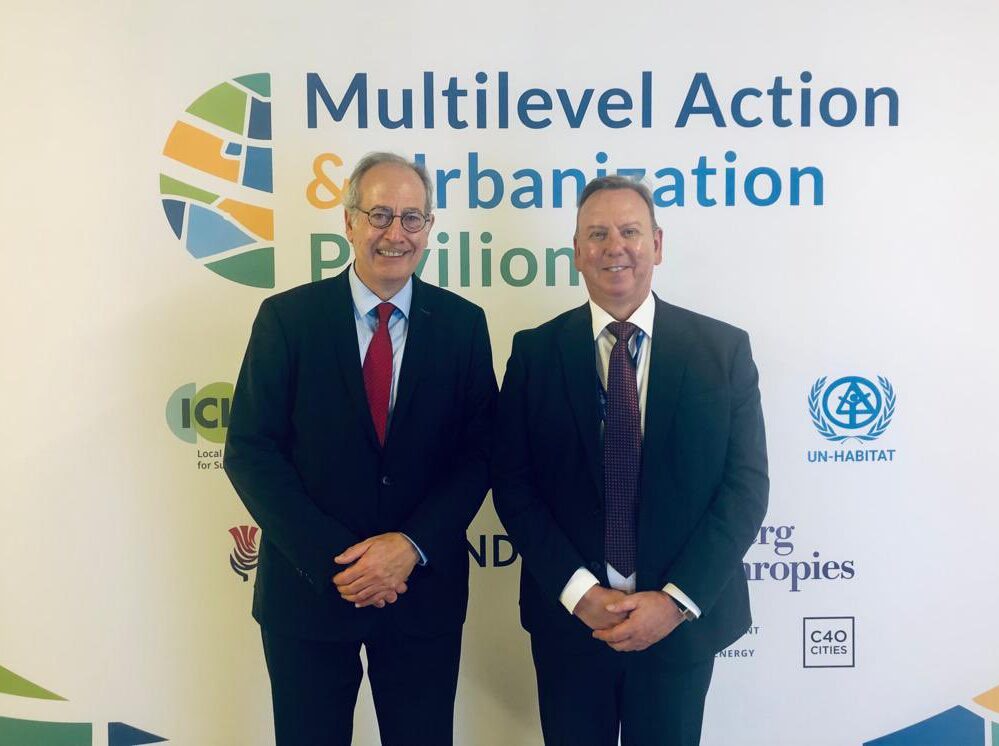Belém, Brazil – During COP30, held in Belém, Cancún participated in one of the most relevant announcements for cities in Latin America and the Caribbean: The launch of the new phase of ProUrbano, a program promoted by ICLEI, the German Development Bank (KfW), and the German Federal Ministry for Economic Cooperation and Development (BMZ). This initiative strengthens the capacity of local governments to access climate finance and develop insurance solutions to address increasingly intense risks.
The delegation from Cancún, led by its Municipal Government and supported by Mayor Ana Paty Peralta, was part of the group of Mexican cities selected for the first phase of the Urban Infrastructure Insurance Facility (UIIF). This participation reaffirms the municipality’s commitment to an adaptation agenda based on evidence, technical planning, and international cooperation.
The event highlighted the expansion of ProUrbano’s financing, with an additional 46 million euros that raise the total fund to 58 million euros through 2030. These resources will strengthen two essential instruments for cities:
- UIIF II, focused on risk modeling and transfer solutions through urban insurance.
- UAFF, designed to convert risk information into bankable resilient infrastructure projects.
In the session “City Voices – From Vision to Results,” Cancún presented the results of its technical analysis of climate risks. The studies developed together with ICLEI show significant exposure: 53,000 people live in areas of high inland flooding vulnerability, while around 200,000—including residents, workers, and tourists—are located in zones susceptible to severe hurricane impacts. These figures underscore the need for financial mechanisms that enable rapid recovery and reduce fiscal pressure after disasters.
Mayor Ana Paty Peralta has consistently promoted an urban resilience vision that considers both the protection of the population and the strategic continuity of Cancún as a global tourism destination. Under this perspective, the municipality has emphasized the transition toward a regenerative tourism model, in which coastal ecosystems, public infrastructure, and the quality of life of the local community are strengthened simultaneously.
Throughout the event, the work of key institutions for climate finance was recognized. The interventions of Christiane Laibach (KfW), Gino Van Begin (ICLEI), and Natascha Beinker (BMZ) were highlighted, as they emphasized the importance of having financial tools designed with and for cities. Cancún publicly expressed its gratitude to these entities for their leadership and technical support.
As part of the next steps, Cancún will participate in the Regional UIIF Workshop, to be held in December in Mexico City, where risk models will be validated, and progress will be made on the final design of insurance products.
With its participation in COP30, Cancún reaffirms its institutional commitment, led by Mayor Ana Paty Peralta, to consolidating itself as a city capable of anticipating risks, protecting its population, and strengthening its climate resilience through global cooperation and innovative financing.
* This article was written by Daniela Torres Serrano, Technical Secretary of the Municipal Government of Benito Juárez, Quintana Roo, Mexico.





